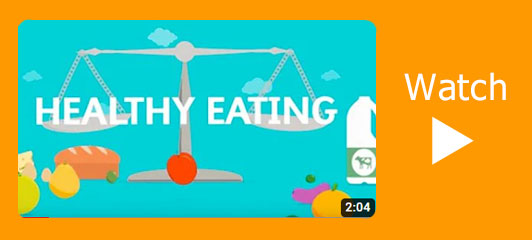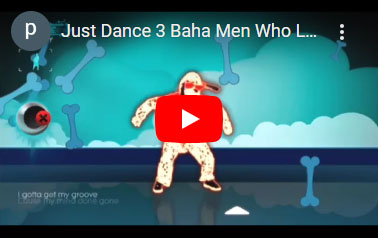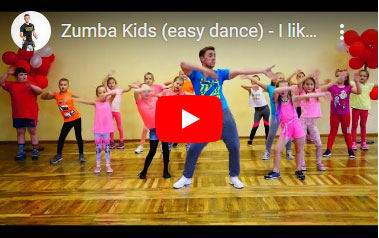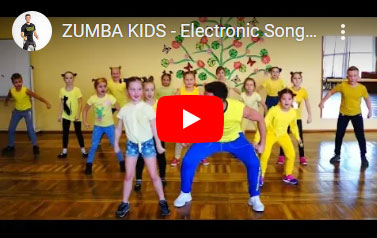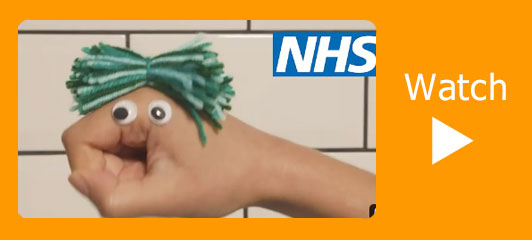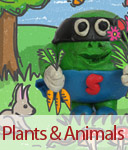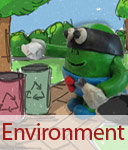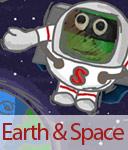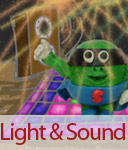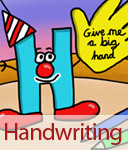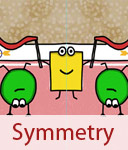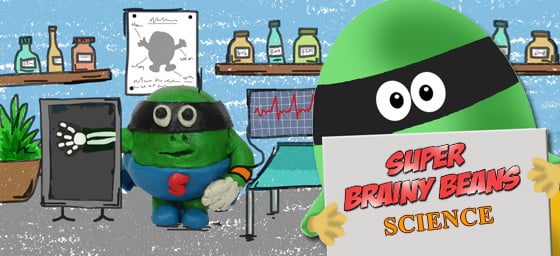
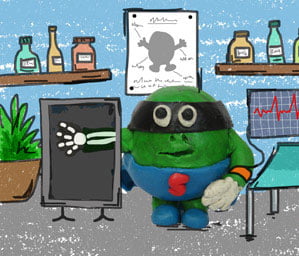
Human Body KS1
Year 1 & 2
Human Body KS1 kids learning at Primary School. Learn about the Human Body and the parts of the body for Key Stage 1, Year 1 & 2 children.
Pick a level
The Human Body
Our bodies are made up of many parts, and they all work together to help us move, play, eat, breathe, and grow!
Skeleton - Your skeleton is made of bones. It gives your body shape, helps you stand up tall, and keeps you strong. Bones also protect the important parts inside you, like your heart and brain. Your muscles are attached to your bones. When your muscles move, they pull on your bones and help you run, jump, and dance!
The bone in your head is called the skull. It’s like a hard helmet that keeps your brain safe.
Brain - Your brain is the boss of your body. It tells everything what to do! It helps you think, feel, move, speak, and remember. Your brain also controls things you don’t even think about, like breathing and blinking.
Heart - Your heart is a very important organ. It works like a pump. It sends blood all around your body. The blood carries oxygen and nutrients to all the parts that need them.
Lungs - You have two lungs inside your chest. They help you breathe. This organ takes oxygen from the air and transfers this to your blood. It then gets takes carbon dioxide from your blood and you breathe this out.
Stomach - Your stomach helps you digest food. That means it breaks the food into tiny bits your body can use for energy, so you can grow strong and stay healthy!
 Parts of the Human Body
Parts of the Human BodyAn animated sequence that tours the human body, picturing and naming the main body parts and describing what they do. How many parts of your body can you name?
Growing up
Everyone starts life as a tiny baby. Babies can’t walk or talk yet, but as they get older, they grow bigger and learn new things.
As you grow, your bones get longer, your muscles get stronger, and your brain learns more and more every day.
One day, you'll be a grown-up too! So eat healthy food, get plenty of sleep, and keep moving to help your body grow.
Our five senses
Our bodies are truly amazing! We use them every day to learn about the world around us. One the ways we do this is with our five senses.
Senses help use see, hear, smell, taste, and touch. They are like superpowers that help our brain understand what's going on.
We use different parts of our body for each sense.
Eyes - We use our eyes to see. This sense is called sight.
Ears - We use our ears to hear sounds. This sense is called hearing.
Nose - We use our nose to smell. This sense is called smell.
Tongue - We use our tongue and mouth to taste. This sense is called taste.
Skin and hands - We use our skin, especially our hands, to to feel things. This sense is called touch.
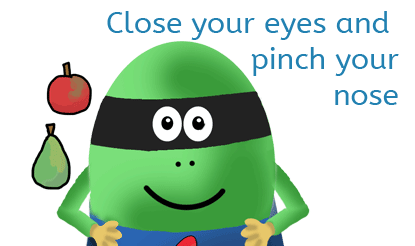
Each sense is important and helps keep us safe and happy. Imagine if one of your senses didn’t work. What would that feel like?
Try this fun activity:
Ask someone to blindfold you (cover your eyes). Then try to walk to the door. But make sure a grown-up or friend helps you, so you don’t bump into anything.
Or try watching your favourite TV show with the sound turned off. Is it still fun? Or is it harder to understand what’s happening?
Our senses work together to help us explore, play, and learn. That’s why it’s important to take care of them!
 Tickle my taste buds
Tickle my taste budsGet Zoe to try food to see if it's sweet, sour or bitter.
Staying alive & healthy
To live, grow, and stay healthy, our bodies need some really important things: food, water, air, exercise, and good hygiene.
Why do we need air?
We breathe in air every second, even when we’re sleeping!
Air has something called oxygen in it. Our lungs take in this oxygen and send it around our body through the blood.
Without air, our bodies couldn’t work, and we wouldn’t be able to live. That’s why breathing is so important!
Why do we need water?
 Water is super important! Our bodies are made of lots of water.
Water is super important! Our bodies are made of lots of water.
We need water to:
Move nutrients around our body- Keep our temperature just right
- Help our brain work properly
- Stay awake and focused
When we don’t drink enough water, we might feel:
- Tired or grumpy
- Too hot
- Like we can’t concentrate
How much water do I need to drink?
| Age | Glasses of water |
| 5-8 years old | 5 glasses |
| 9-12 years old | 7 glasses |
| 13+ years old | 8-10 glasses |
What food should I eat?
To stay strong and healthy, we need to eat the right amount of different kinds of food. This is called a balanced diet.
There are five main food groups:
- Fruit and vegetables - full of vitamins to keep you healthy
- Carbohydrates - like bread, rice and pasta to give you energy
- Proteins - like meat, fish, eggs and beans to help you grow
- Dairy - like milk, cheese and yogurt to keep your bones strong
- Sugars & fats - tasty, but we only need a little bit.
Can you name one food from each group that you like to eat?
 What is a balanced diet?
What is a balanced diet?The human body needs a balanced diet to work properly.
 DK Find out!
DK Find out!What you need in a balanced diet, dairy, fats & sugars, fruit & vegetables.
 DK Find out!
DK Find out!What's in food? Learn about nutrients in the foods we eat.
Why do I need to exercise?
Exercising keeps your heart, lungs and muscles strong and healthy. We need to exercise every day to keep your body in tip top condition. Have you ever ran about so much that your can feel you heart beating quickly and hard afterwards? That's a good thing. It means that your are making your heart stronger by working hard. It is also working your lungs too.
Exercise can make us feel better as well. Exercising can make us feel happy and more positive and give us a lot more energy. It helps us to concentrate and it can also help us sleep well at night too.
How much exercise do I need?
Children between 5 and 8 years old should do one hour of exercise a day if they can. You can tell if you have worked hard enough if you start to feel sweaty and your heart is beating fast.
How can I have good hygiene?
Looking after your teeth
Brushing your teeth twice a day helps remove any sugar that may build up around your teeth and gums. If we let this sugar build up it could damage our teeth.
How well do you brush your teeth?
Ask in a pharmacy for a special tablet that turns all the plaque in your mouth coloured and see if you can brush your teeth clean. Notice how long it takes, you should aim to brush your teeth for 2 minutes, twice a day. Find a timer and time yourself brushing.
NOTE: Please follow the instructions on the packet carefully.
![]() Take a look at your teeth in a mirror. Can you see that they are not all the same? How many teeth do you have? Now count how many teeth an adult has. Do you have more or less than them?
Take a look at your teeth in a mirror. Can you see that they are not all the same? How many teeth do you have? Now count how many teeth an adult has. Do you have more or less than them?
 Brushing your teeth
Brushing your teethLearn how to ensure your mouth stays healthy by brushing properly.

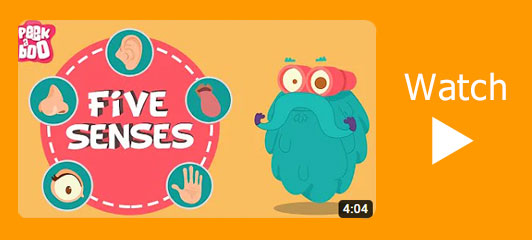
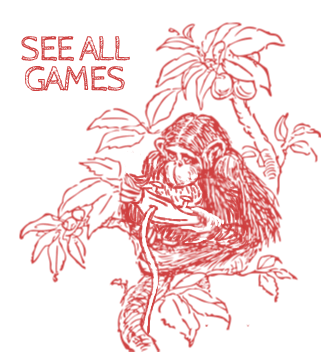
 Water is super important! Our bodies are made of lots of water.
Water is super important! Our bodies are made of lots of water.